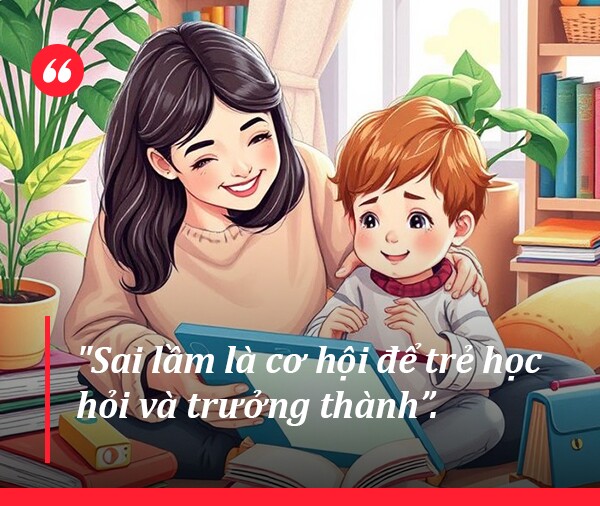It is easy for parents to become overwhelmed by their emotions and lose their ability to think rationally. They may feel helpless in the face of their children’s behavior, and shouting becomes a way to release their frustration. However, this does not solve the problem and can leave psychological scars on the children.
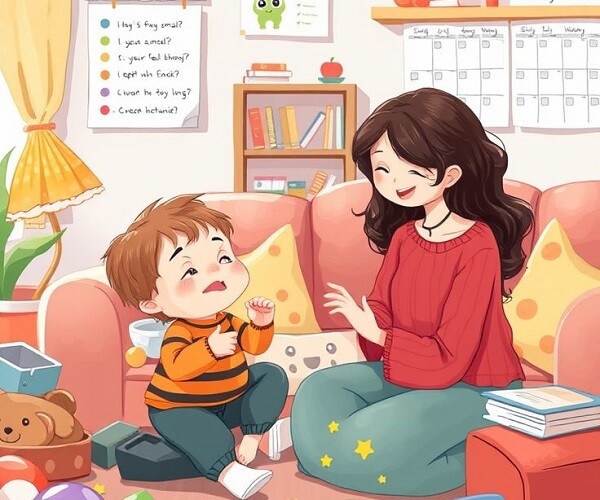
On this issue, a psychologist suggests that parents take a break and look within themselves. This helps parents calm down and opens up the opportunity to understand their own emotions. Learning to talk to oneself is an important step in identifying the causes of anger.
Understanding one’s own emotions will help parents realize that children have their own emotions and needs. From there, parents can gradually give up the habit of shouting at their children and communicate more positively.

“I know you didn’t mean to upset me, you’re just exploring and learning as you grow”
These words show understanding and create a safe space for the child. When children act mischievously or inappropriately, it’s important for parents to realize that it’s part of their exploration and learning process.
Kahlil Gibran said, “Your children are not your children. They are the sons and daughters of Life’s longing for itself.” This emphasizes that each child carries their own dreams, aspirations, and potential. Every action, whether mischievous or stubborn, reflects their curiosity and desire to discover the world around them.
When a parent understands that their child is not intentionally trying to upset them but is instead exploring their boundaries and capabilities, it becomes easier to adjust their reaction. A parent might add, “I know you’re learning and sometimes you’ll make mistakes. That’s part of growing up.”
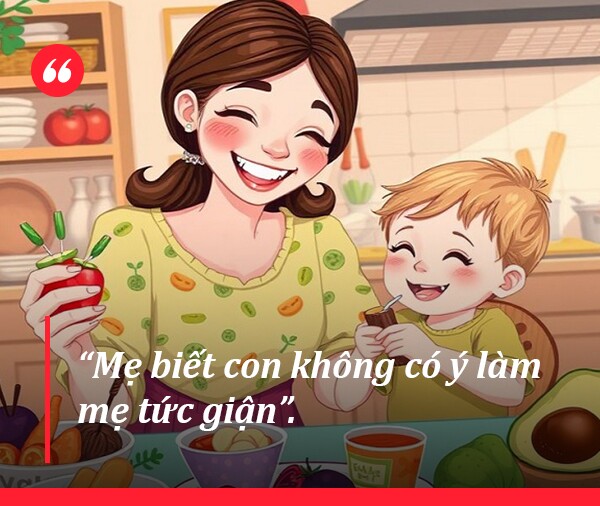

“Shouting doesn’t solve the problem, it only hurts us more”
Parents need to remind themselves that shouting at their children is never a good solution. It’s just a temporary release of emotions, but it actually hurts both sides in the heat of the moment.
Shouting may give parents a temporary sense of relief, but it also leaves invisible wounds in the children’s souls. They feel scared and lose their sense of security.
Instead, taking the time to calm down and carefully consider the situation will help parents respond more appropriately.
Children are in the process of learning and growing, and they may not fully understand the implications of their actions. It’s important to help them become aware of their behavior without hurting their emotions.
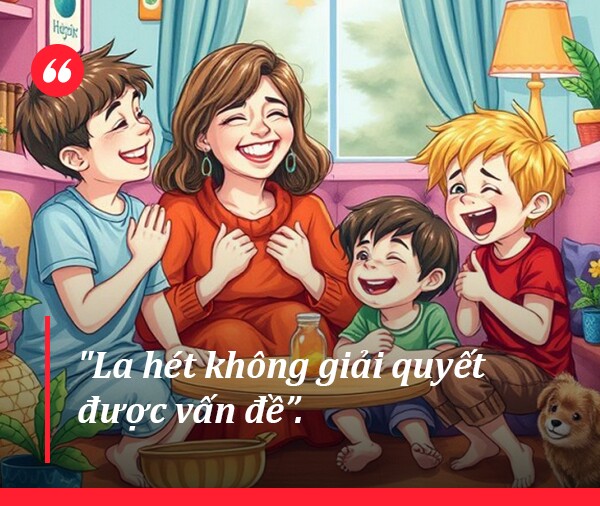

“The harm caused by my emotional outburst is far greater than your mistake”
Shouting and impatient reactions can leave deep psychological scars on both parent and child.
A child’s heart is like a delicate flower that needs careful nurturing. Every time a parent shouts, the child feels afraid and loses confidence.
These wounds not only affect their current emotions but can also have long-lasting effects as they grow up. Children may feel unworthy of love, becoming withdrawn and finding it difficult to open up to others.
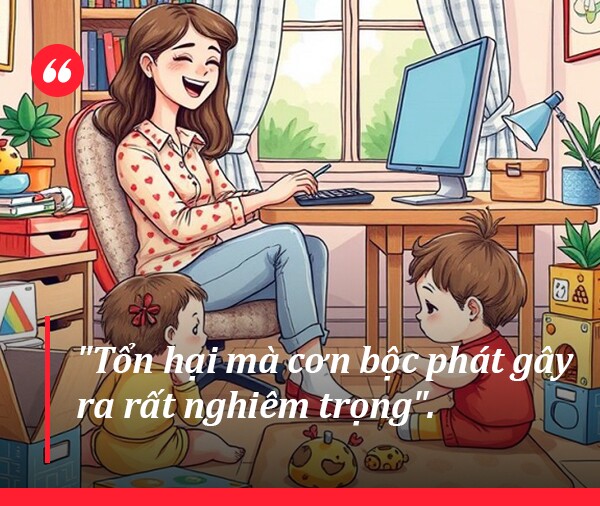

“I pay attention to your emotions, not just your behavior”
Tagore said, “Love is another name for understanding.” When children cry and lose their temper, there are often unmet needs or hidden feelings of injustice.
So, the phrase “I pay attention to your emotions, not just your behavior” serves as a reminder, encouraging parents to listen to the deep emotions their children are experiencing, rather than just focusing on their actions.
When children display discomfort, it may indicate that they feel insecure, lacking, or unloved.
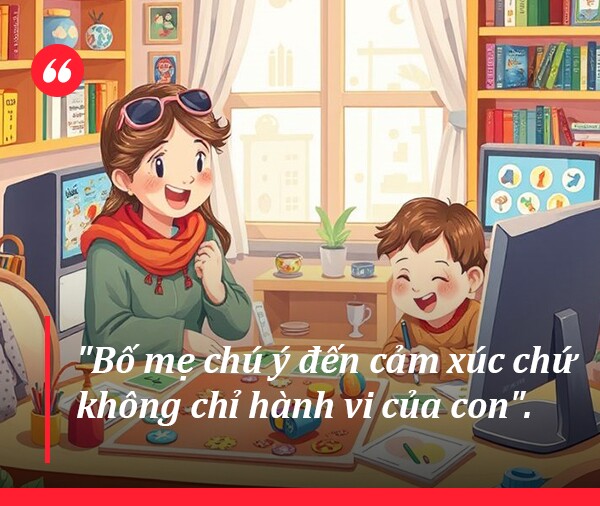

“I am your mirror; my emotional management affects you”
Parents are their children’s guides on the path to adulthood and set the example for their words and actions.
Children unconsciously imitate their parents’ words, actions, and emotions, which emphasizes the importance of a parent’s role.
When parents demonstrate patience and respect, children learn these values. Conversely, if parents frequently express anger, criticism, or impatience, children easily absorb these behaviors and develop negative habits.
Especially in the early years, when the brain is rapidly developing, it is natural for children to observe and learn from their surroundings.
By recognizing that they are role models for their children, parents can proactively create positive behaviors and habits.
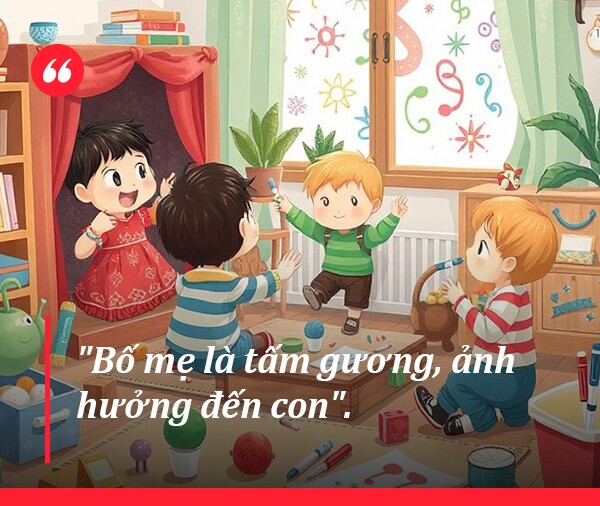

“Mistakes are opportunities for children to learn and grow; I should guide them more”
There’s a saying, “Failure is the mother of success.” Children will undoubtedly make mistakes as they grow up, and this is how they learn and discover the world. When children experience failure, they have the opportunity to think, analyze, and draw valuable lessons for the future.
Parents should help children recognize the value of failure. Instead of criticizing their mistakes, encourage them to see it as a learning opportunity.
Parents can say, “I know you tried your best, and this failure will make you even better next time.” Such words of encouragement motivate children to keep trying.
